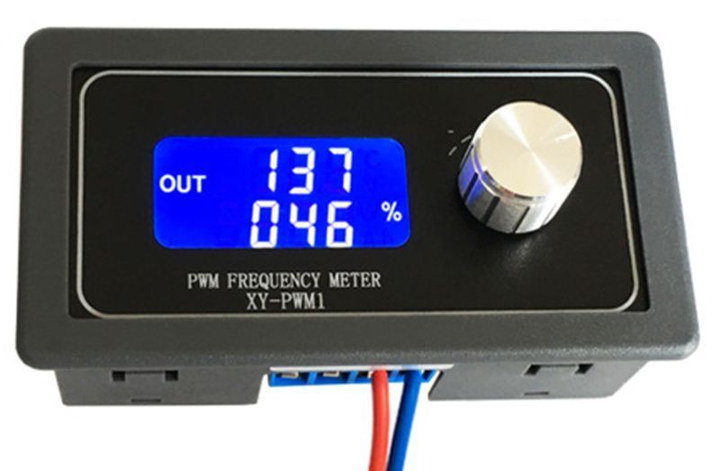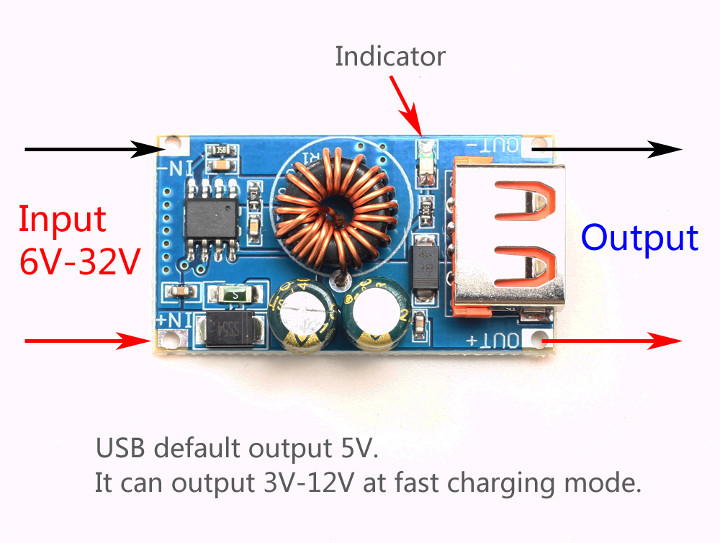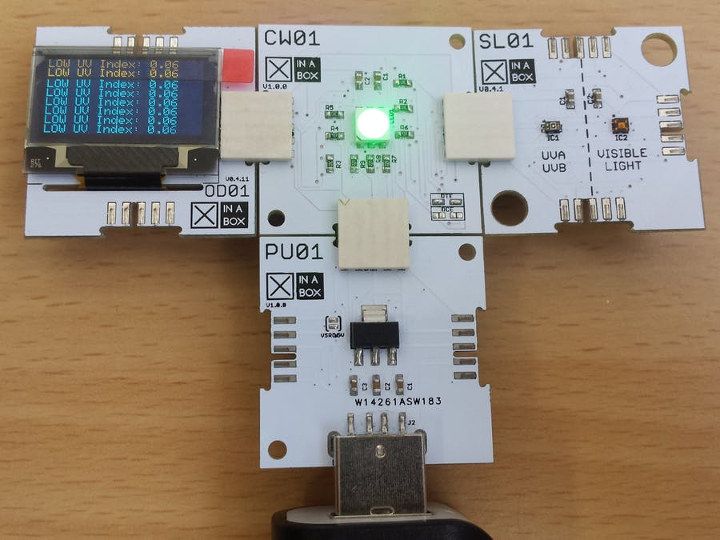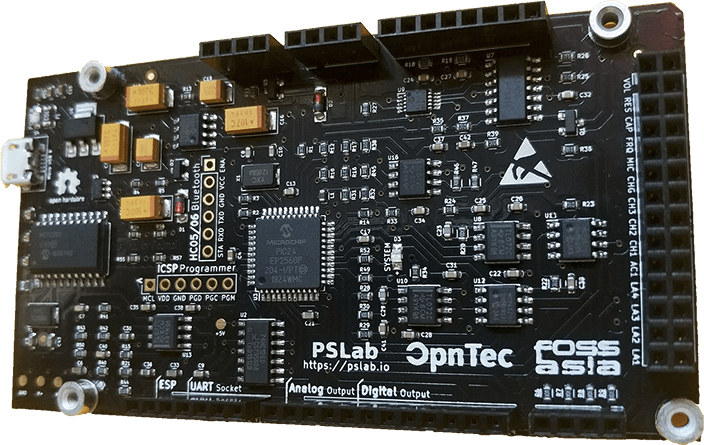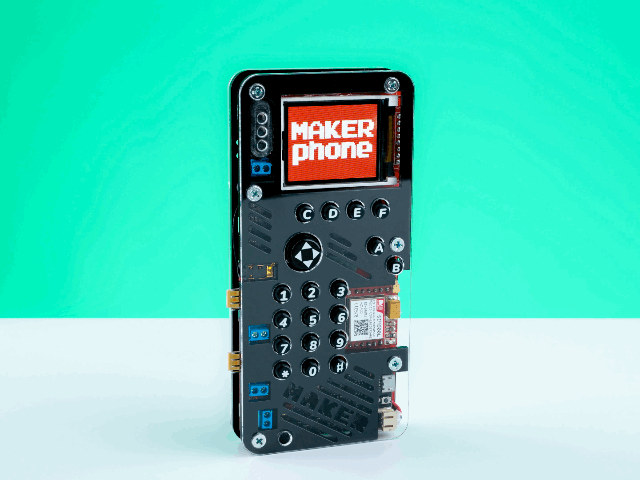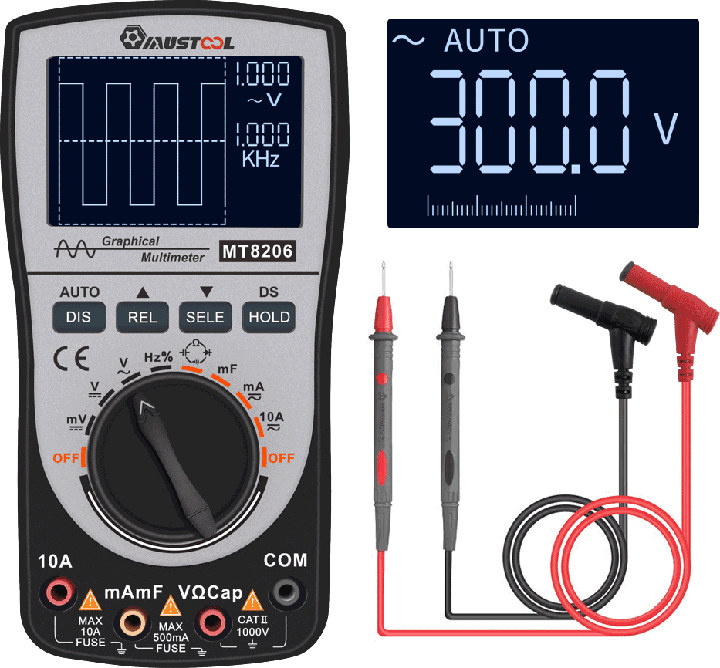HuaQiangBei electronics market is one of the most popular places for makers in Shenzhen, as you can purchase any kind of components in shops spread across several multi-story buildings. If you can’t find something over there, you’re unlikely to find it anywhere else. So this morning when I read an article entitled “Vendors protest eviction from Shenzhen’s historic Huaqiangbei electronics market” with photos like the one above I was shocked initially thinking the complete market would potentially close. I can still clearly remember SEG building along the main street when I lived in China many years ago. This building is still up and running, and instead Technode reports about the closure of the eight-story Gaokede building which was planned since the end of 2018, and the owner cut off electricity and water supplies yesterday. Even if you are a regular visitor, you’d be forgiven if you forgot where Gaokede is […]
This $4 PWM Signal Generator Outputs Pulses up to 150 KHz
When I think about signals generators, I usually think about equipment that costs several hundred dollars, but depending on your needs you could also use much cheaper solutions like PSLab electronics lab board ($65), or an Arduino board to generate a signal. Another option is to get an ultra-cheap signal generator such as XY-PWM1 which I found on ICStation for just $4.19.Its function is limited to PWM pulses from 1Hz to 150KHz, with a voltage range between 3.3V and 30V. XY-PWM1 specifications: LCD display showing frequency and duty cycle Voltage Range – DC 3.3V-30V Frequency range Normal mode: 1Hz~150KHz Precise mode: 1Hz~15KHz Frequency accuracy: 2% Duty cycle accuracy 1% in Normal mode 0.1% in Precise mode Duty cycle range – 0.00%-100% Output Current – About 5-30mA Dimensions – 79x43x37mm Temperature Range – -40℃~85℃ Humidity – 0%~95% RH There’s no obvious button to select mode, but apparently, you’d just need to use […]
QC-MINI QC 2.0/3.0 USB fast charging board sells for $2
QC-MINI is a USB fast charging board that can take 6V to 32V DC input from a power source such as solar panel, and outputs 3 to 12V via a USB port using QC 2.0/3.0 and other fast charging standards. The board can be useful to implement fast charging in any project, and it won’t break the bank as I’ve just come accross the module on IC Station for just $1.99. QC-MINI key features and specifications: Input voltage – 6.0V to 32V DC Output 5V DC up to 3.4A by default Fast Charging QC 2.0, QC 3.0 with 9V @ 2.5A and 12V @ 2A support BC1.2 protocol Apple protocol Samsung protocol MTK PE1.1/PE2.0 Huawei Fast Charge Protocol FCP, does not support mate9 (SCP) Spreadtrum Fast Charge Protocol SFCP Safety – Overvoltage protection, undervoltage protection, overcurrent protection, short circuit protection, over temperature protection. Misc – LED load indicator with brightness […]
XinaBox’s xChips Enable Modular Electronics for Makers & STEM Education
So today, I decided to have a look a 96Boards website to see if there was anything new from the community, and I came accross “X in a Box B901“, an “☒CHIP is designed to interface with the 96 Boards, such as the Dragonboard 410c. This provides an interface to support the ☒CHIP ecosystem, adding support for many additional sensors etc…” I had no idea what it was all about, so obviously I had to investigate. Xinabox (X in a Box) is an ecosystem of modular electronics boards used for developing, making products and learning. There are now over 70 modular xChip” with cores/CPUs, sensors, power, communication, output, and storage. They are interconnected together without wires, soldering, breadboards, and adapters are provided for Raspberry Pi, 96Boards, and other development boards. xChips can be sorted into 8 categories: Cores – MCU/CPI cores based on Microchip ATMega328P, SAMD21, ESP8266, or ESP32 with […]
PSLab Electronics Lab Board is Now Available for $65
Pocket Science Lab (PSLab) is an open source hardware USB board that aims to bring electronics labs to the masses, as it can act as an oscilloscope, voltmeter, programmable voltage and current source, logic analyzer, or signal generator when connected to a PC or mobile phone. This is not professional equipment, and instead designed for STEM education. When we first covered the board in August, it was still in development, but I’ve just found it is now listed and in stock on Seeed Studio for $64.90. FOSSASIA and OpnTec are the organization behind the board’s development. Here’s a reminder of PSLab board main specifications: MCU – Microchip PIC24EP256GP204 16-bit microcontroller @ up to 70 MHz with 32KB SRAM, 256KB flash Wireless Connectivity Footprint for ESP8266 module (ESP-12E) for 802.11 b/g/n WiFi (on bottom of board) Bluetooth extension slot 4-Channel, up to 2MSPS Oscilloscope 12-bit Voltmeter. Programmable gain. Input ranges from […]
FOSDEM 2019 Open Source Developers Meeting Schedule
FOSDEM – which stands for Free and Open Source Software Developers’ European Meeting – is a free-to-participate event where developers meet on the first week-end of February to discuss open source software & hardware projects. FOSDEM 2019 will take place on February 2 & 3, and the schedule has already been published with 671 speakers scheduled to speak in 711 events themselves sorted in 62 tracks. Like every year, I’ll create a virtual schedule based on some of the sessions most relevant to this blog in tracks such as open hardware, open media, RISC-V, and hardware enablement tracks. February 2 10:30 – 10:55 – VkRunner: a Vulkan shader test tool by Neil Roberts A presentation of VkRunner which is a tool to help test the compiler in your Vulkan driver using simple high-level scripts. Perhaps the largest part of developing a modern graphics driver revolves around getting the compiler to […]
$94 MAKERphone DIY Mobile Phone Supports MicroPython, Arduino IDE, and Scratch (Crowdfunding)
If you ever wanted to buy a mobile phone that you can assemble yourself, RePhone Kit Ctreate going for $59 is a nice option, but in truth it does not exactly look like your typical phone with its almost square shape. It’s also good to have more option, that’s exactly what MAKERphone is offering with a DIY mobile phone targeting the educational market. Beside the educational value of the assembly also involving some soldering skills depending on the selected kit, kids will be able to learn to program the phone with MicroPython, the Arduino IDE (C language), and/or Scratch visual programming. MAKERphone kit content and specifications: MAKERphone circuit board with 8x user LEDs for backlight (and special effects), 4-way mechanical joystick, 12-button numeric keypad, A, B, C, D, E, and F buttons, DS3231 RTC chip, vibrator… Main microcomputer module based on Espressif Systems ESP32 WiSoC with 802.11 b/g/n WiFi, Bluetooth […]
MUSTOOL MT8206 Multimeter & Oscilloscope Goes for $42 (Promo)
MUSTOOL MT8206 looks like a standard digital multimeter, but the device is actually a 2-in-1 device that also serves as a oscilloscope. Banggood have the digital multimeter scope on sale now for $47.99 shipped – going down to $42.23 with 12MT8206 coupon – as part of their 12th anniversary promotion running until September 7th. MUSTOOL MT8206 specifications: Sampling – 200 ksps (max), 3999 counts Bandwidth – 20 kHz Screen – 128×64 dot matrix LCD display Function Ranges DC voltage – 400mV, 4V/40V/400V/1000V AC voltage – 400mV/4V/40V/400V/750V DC & AC current – 40mA/400mA, 4A/10A Resistance – 400.0 Ohm to 40.00 MOhm Capacitance – 0.1μF-100μF/10mF Frequency – 5Hz to 5MHz Measuring Range – Manual/auto range Storage Capacity – 100 data sets, 10 wave forms Input Resistance – 10MΩ Misc – Auto power off function, relative value, Power Supply – 3x AA batteries Dimensions – 160 x 83 x 32 mm Weight – 190 grams Switching between multimeter […]



